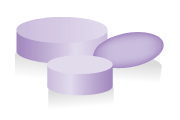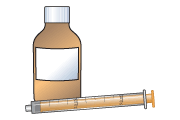Diazepam for muscle spasm
This leaflet is for parents and carers about how to use this medicine in children. Our information may differ from that provided by the manufacturers, because their information usually relates to adults. Read this leaflet carefully. Keep it somewhere safe so that you can read it again.
Do not stop giving Diazepam suddenly, as this may cause serious side-effects.
Name of medicine
- Tablets: 2 mg, 5 mg, 10 mg
- Liquid medicine: 2 mg in 5 mL
Why is it important for my child to take Diazepam?
Diazepam will help your child’s muscles to relax. This should help to reduce muscle pain.
What is Diazepam available as?
- Tablets: 2 mg, 5 mg, 10 mg
- Liquid medicine: 2 mg in 5 mL
When should I give Diazepam
The Diazepam is usually given twice each day. Give one dose in the morning and one in the evening. Ideally these times are 10–12 hours apart. For example, this could be between 7am and 8am and between 7pm and 8pm.
You and your doctor will work out when and how often to give Diazepam to suit your child.
How much should I give?
Your doctor will work out the amount of Diazepam (the dose) that is right for your child. The dose will be shown on the medicine label.
It may take a while to find the right dose that relaxes the muscles but without making your child floppy. You and your doctor will work out the right dose together.
It is important that you follow your doctor’s instructions about how much to give.
How should I give Diazepam?

Tablets
- Tablets should be swallowed with a glass of water, squash or juice. Your child should not chew the tablet.

Liquid medicine
- Shake the medicine well.
- Measure out the right amount using an oral syringe or a medicine spoon. You can get these from your pharmacist. Do not use a kitchen teaspoon as it will not give the right amount.
When should the medicine start working?
Your child should begin to feel less muscle pain about 15 minutes after taking a dose of diazepam.
The muscles will start to relax when your child has been taking diazepam regularly.
What if my child is sick (vomits)?
- If your child is sick less than 30 minutes after having a dose of Diazepam, give them the same dose again.
- If your child is sick more than 30 minutes after having a dose of Diazepam, do not give them another dose. Wait until the next normal dose.
If your child is sick again, seek advice from your family doctor, nurse, pharmacist, or hospital. They will decide what to do based on your child’s condition and the specific medicine involved.
What if I forget to give it?
If you usually give it twice a day: If you remember up to 4 hours after you should have given a dose, give your child the missed dose. For example, if you usually give a dose at about 7am, you can give the missed dose at any time up to 11am. If you remember after that time, do not give the missed dose. Give the next dose as usual.
What if I give too much?
If you think you may have given your child too much Diazepam, take your child to hospital straight away. Take the medicine container or packet with you, even if it is empty. This will be useful to the doctor. Have the packet with you if you telephone for advice.
It can be dangerous to give too much Diazepam.
Are there any possible side effects?
We use medicines to make our children better, but sometimes they have other effects that we don’t want (side effects).
Side effects you must do something about
If your child is very sleepy, or if they have problems breathing, they may have had too much Diazepam. Take them to hospital straight away.
Other side-effects you need to know about
Your child may be more sleepy than usual. This will get better when they have been taking Diazepam for a few days.
If your child becomes floppy, they may be taking too much Diazepam. Contact your doctor if this happens.
Your child may have difficulty controlling their movements (ataxia) or walking, may develop difficulty talking, become irritable or show odd behaviour, or they may feel light-headed (as if they may faint). Diazepam may make these symptoms worse in children who already have them. Contact your doctor if this happens.
There may sometimes be other side effects that are not listed above. If you notice anything unusual and are concerned, contact your doctor. You can report any suspected side effects to a UK safety scheme at mhra.gov.uk/yellowcard
Can other medicines be given at the same time as Diazepam?
- Diazepam can make your child sleepy, so do not give your child any other drugs that also have this effect, such as some medicines for hay fever.
- You can give your child medicines that contain paracetamol or ibuprofen, unless your doctor has told you not to.
Check with your doctor or pharmacist before giving any other medicines to your child. This includes herbal and complementary medicines.
Is there anything else I need to know about this medicine?
Do not suddenly stop giving Diazepam, as this can cause severe side-effects.
- You may have heard that some people become addicted to or dependent on diazepam. This is unlikely to happen when diazepam is given to children for pain or spasms.
- An antidote can be given to reverse the effects of diazepam in someone who has had too much. This has to be done in hospital.
General advice about medicines
- Try to give medicines at about the same times each day, to help you remember.
- If you are not sure a medicine is working, contact your doctor but continue to give the medicine as usual in the meantime. Do not give extra doses, as you may do harm.
- Only give this medicine to your child. Never give it to anyone else, even if their condition appears to be the same, as this could do harm.
- Make sure that you always have enough medicine. Order a new prescription at least 2 weeks before you will run out.
- Make sure that the medicines you have at home have not reached the ‘use by’ date on the packaging. Give old medicines to your pharmacist to dispose of.
If you think someone else may have taken the medicine by accident, contact your doctor straight away.
Where should I keep this medicine?
- Keep the medicine in a cupboard, away from heat and direct sunlight.
- It does not need to be kept in the fridge.
- Make sure that children cannot see or reach the medicine.
- Keep the medicine in the container it came in.
Who to contact for more information?
Your doctor, pharmacist or nurse will be able to give you more information about Diazepam and about pain relief for spasticity.
England: NHS 111
Tel 111
www.nhs.ukScotland: NHS 24
Tel 111
www.nhs24.scotNorthern Ireland: NI Direct
Wales: NHS 111 Wales
Tel 111
www.111.wales.nhs.ukScope (disability equality charity)
0808 800 3333
www.scope.org.ukCopyright disclaimer
Version [2]. © NPPG, RCPCH and WellChild, all rights reserved. Review by March 2022.
The primary source for the information in this leaflet is the British National Formulary for Children. For details on any other sources used for this leaflet, please contact us through our website, www.medicinesforchildren.org.uk.
We take great care to make sure that the information in this leaflet is correct and up-to-date. However, medicines can be used in different ways for different patients. It is important that you ask the advice of your doctor or pharmacist if you are not sure about something. This leaflet is about the use of these medicines in the UK, and may not apply to other countries. The Royal College of Paediatrics and Child Health (RCPCH), the Neonatal and Paediatric Pharmacists Group (NPPG), WellChild and the contributors and editors cannot be held responsible for the accuracy of information, omissions of information, or any actions that may be taken as a consequence of reading this leaflet.
